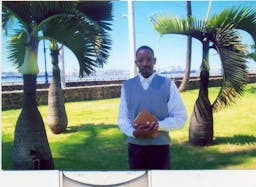Washing Hands to Improve Health in Rural DR Congo
Feb 26, 2020
Story
Washing Hands to Improve Health in Rural DR Congo On every October 15th, UNICEF commemorates Global Hand washing Day. Congolese Females Action for Promoting Rights and Development (COFAPRI) also recognised this day recently with organised sessions for school children in the rural villages, with the support of educational DVDs kindly supplied by Thare Machi Education (TME). Sessions were organised in five schools, with a total number of more than 1,500 children who watched the videos and practiced washing hands. Women also participated in the sessions. The sessions happened in various villages, with different schools and on different days. For this memorable occasion, one way we helped local people and children was to teach them the importance of remaining constantly hygienic. In this vein, both women and children gained moral and comprehensive encouragement and material support for growing consciousness and deep comprehension of the need for clean hand washing with soap. The attendees watched a video on the reasons why our hands should remain clean all the time, and the possible consequences if we don't heed the advice. One of the major points that was emphasised is that hand washing is a pro-active, simple, inexpensive and effective method of avoiding getting contaminated with germs that ultimately cause us illnesses. Having our hands washed with soap must be encouraged because it can save our lives, since we stay clean and healthy and hence avoid a lot of diseases. The audience was inspired and marshalled around the video and learned reasons why they have to develop the practices of washing their hands with soap at critical moments on daily basis. “We are always grateful to COFAPRI for the different good things they bring us in our schools around here. Today, we have watched images on how and why we have to wash our hands with soap and that we must develop this habit at home and at school. After greeting people, when from the toilets, after cleaning the board, after covering our mouths for sneezing, after blowing the nose, etc, look for soap and wash your hands. What made the difference was that we watched the video, got more explanations, answered questions and then made practice with soap. Importantly you also gave all of us pieces of soap to use when we are at home. This was really great and we will never forget the constructive instructions we got from you. Be blessed!” Pupil attendee. COFAPRI's use of hand washing, learning by doing, is spreading amongst schools in the villages of the DR Congo. This has been a wonderful moment to raise awareness of the reputation of washing hands with soap every moment when needed. This said, the practice has also been making it pleasurable and amusing for these school children to always remember that washing hands with soap is a must and it helps us shun some germs that cause lots of unknown and known diseases. A teacher who also attended the session adds: “If we could have all NGOs around here doing the same as COFAPRI, we would gain a lot. In my opinion, washing our hands with soap is something that is taken as an unnecessary performance or manner in our area here. I think there is another reason why people here seem to be less interested in it. It is because people are uneducated and others even lack soap and clean water. Poverty is rampant in our villages here. If you lack food to eat, will you get money to buy soap? But good enough, COFAPRI is helping us to overcome these beliefs that soap is not a necessity.” Teacher attendee. COFAPRI is influencing the children, as well as their parents, to make washing hands their way of life in their homes and villages. In this way, all means are now being put in place to make sure people are influencing others to wash their hands every time and several times a day. Giving the people soap for washing hands at home after watching the videos has been massively affecting many already. The word has begun to be passed around as neighbours are now prompting each other. This has become a stimulating peer-influence, which has already been easily nurturing and supporting a general culture of washing hands with soap in all the villages where the organisation has members. The only big challenge COFAPRI is meeting, in this respect, is that there is not have enough means to supply soap to all the people in all the villages where we work. Otherwise, the exercise is very much appreciated and it is changing the lives of many.




